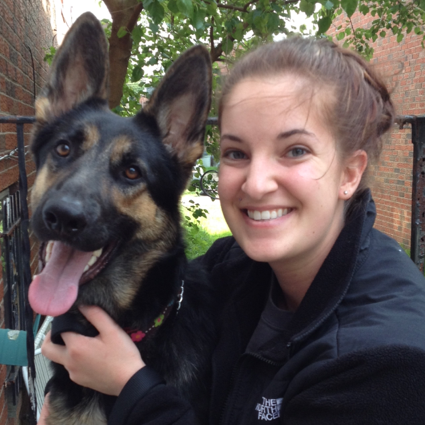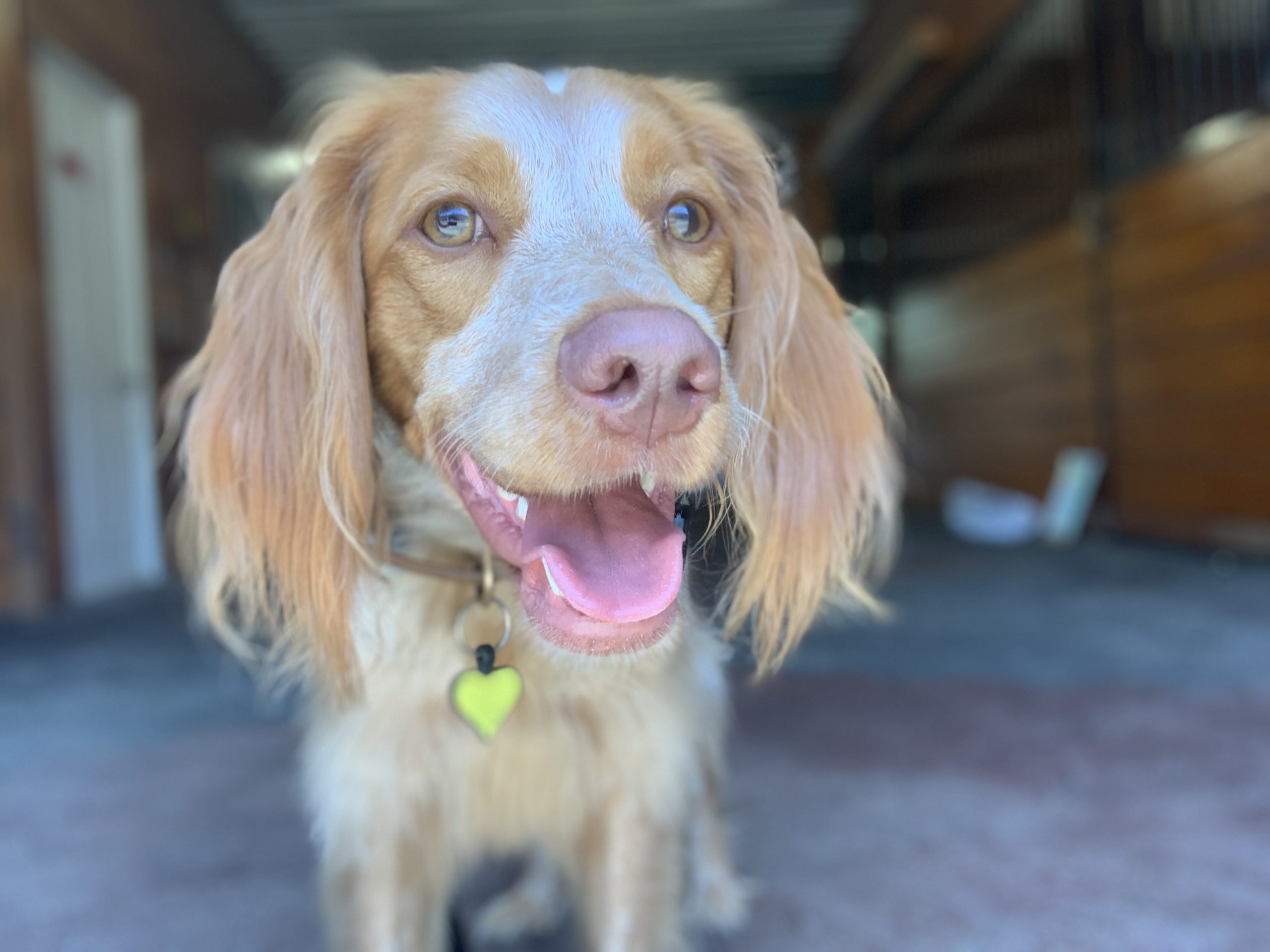I have so many amazing clients, and this story is about one of them. Edith is one of those clients that dog trainers dream of having. She has a wonderfully, well-balanced Golden retriever who is a joy to work with. She has taken just about every training class possible and supplemented with private lessons. Lola the dog goes to doggie daycare twice a week to keep up her socialization skills. Lola is also fortunate enough to accompany Edith to work on days when she is not in daycare. Lola is a therapy dog and regularly visits children and the elderly. Despite some health concerns and joint issues (oh goldens!) Lola is pretty much the perfect dog, and Edith is responsible for it.
So, imagine Edith’s surprise when last week, Lola growled at a child! After a long day of riding around in the car for work, Edith decided to visit one of her favorite boutiques. Since it was hot outside, she was hesitant to leave Lola in the car, so the boutique owner allowed her to bring the dog inside. Lola was asked to do a sit-stay while Edith looked at an item.
Then, it happened, a child ran up to Lola and jumped on her to give her a hug. Lola then growled at the child, and the child’s mom pulled him away. To say that Edith was devastated was an understatement. She called, in tears asking what her next step should be. Should she have an evaluation done on Lola’s temperament? Report the incident to someone? Begin a behavior modification plan to desensitize Lola to children? She didn’t want her poor dog to be taken away from her or put down!
“No”, I said, “you should thank your dog.” Edith went silent…
Now, I’m not saying that you should praise a dog for growling at people on a regular basis. But, if you’ve got a well balanced dog who does not make a habit of overreacting to things, a growl can be a very good thing, and here are 5 reasons why:
5: A growl may be telling you that something is wrong. In this case, Lola has Bad hips. Her owner and I knew that her hips are sometimes painful after long rides in the car or after heavy exercise. Perhaps this incident exposed something that was painful to or uncomfortable for the dog. As dogs can’t articulate this kind of issue, sometimes a vocalization is the only way the dog can get it through to you that something is wrong.
4: A growl is a signal to you, the dog’s owner that he has been pushed beyond his threshold. 8 hours of work+ long ride in the car + hot day + painful joints + screaming child coming at you when you are trying to do something else (hold a sit-stay)= TOO MUCH!!! Oh owners, pay more attention to what you ask of your dog!!!! Don’t set them up to fail!
3: A growl lets you know what areas you need to do more training work. Let’s say that your dog has not had much exposure to children holding balloons. But you’ve noticed that every time your dog sees a child holding a balloon, he gets startled and growls. That’s your signal to desensitize your dog to children holding balloons. ASAP!!! Wasn’t it nice of your dog to give you that information?
2: A growl can also tell you that your dog is not a saintly, perfect being that is tolerant of everything…they have bad days, just like us! We hold our dogs to such high standards, don’t we? They’re supposed to relinquish their toys or food on our whim, heed every command we give with sometimes very little feedback or reward from us, understand all of our body language even though we are entirely different beings, and most of all…never get upset at another person or dog! Seems unrealistic now that you think of it, right? Dogs have bad days, just like people. If you’ve got a dog who is a good dog, but growled at someone…maybe he’s having a bad day. It happens to the best of us after all!
1: A growl is a growl…your dog did not bite! I see so many clients that say something along the likes of, “He tried to bite me, but I was too fast and got away from him!”, to me. My answer to them is always…”He didn’t try to bite you, he gave you a warning. If he wanted to bite you, he would have.”. And this is true.
So, while none of us would ever like our dear, sweet, dogs to growl, Next time yours does, look at the context of the situation. Remember that growling is often not an act of aggression, it is a form of communication. And if you ever need clarification on what the context of the growl was, don’t hesitate to ask your trainer. (And, if you don’t have a trainer, I know where you can find a good one…). But, next time your dog growls, remember that he growled, he did not bite, attack, or cross the line. Thank him and remember to be vigilant about where your dog is and who is around him.


